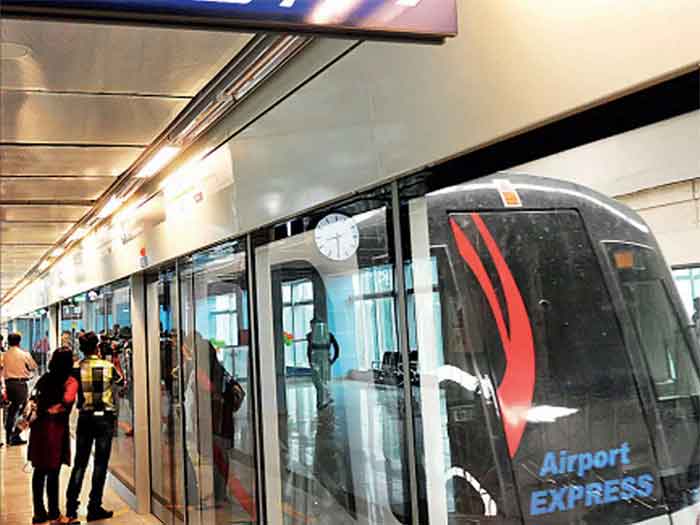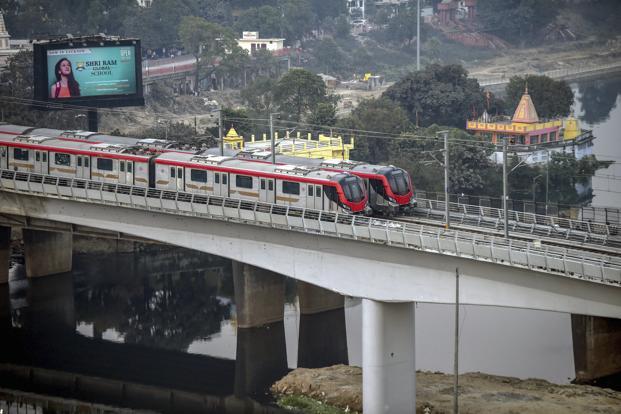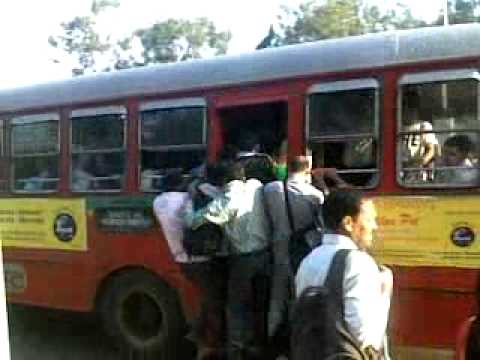
Beijing, the Chinese capital could well be a model for India’s Swachh Bharat mission of cleanliness. Toilets are everywhere in the city, I noticed during my two-week visit to Beijing last month. It could also be a model for us in public transport. I experienced this through my constant walks in different parts of the city and travel by buses and the underground Metro railway line known there as the subway.
I walked through hutongs, traditional lanes and neighbourhoods, and on streets and roads and there were clean public toilets everywhere and they are free. It is a big relief indeed in more sense than one. In some parts of Europe one has to spend almost equal to about 100 to access a toilet. Barring a very few, none smelled in Beijing, they are also very well designed, many are like traditional Indian toilets requiring a squatting position which is being widely seen as more scientific.
It is a culture shock. One finds a toilet every 100 metres invariably there are special facilities for the physically challenged.
Washing and cleaning of streets with motorized vehicles is a regular sight.
The footpaths are very wide and very well constructed and clean. I walked all over the city and not once did I have to climb up and down as one has to do on disjointed footpaths in India.
There is far more democracy on roads than in India. Pedestrians are given more than sufficient time to cross at signals even in high profile and busy areas like around Tiannanmen Square. A pedestrian does not have to contend with rude, overbearing, honking motorists. The traffic police,like other police, are gentle and helpful. There are some very pleasant car-free streets. I was staying on one near Tiannanmen Square. I could sit on a nice wooden bench in the middle of the street watching the goings on. Mothers could take children in prams and children could chase one another on the road without any fear of being threatened by cars. A few motor cycles did go around but in absolute silence. While our motor cycles equip themselves with machinery emitting ear splitting noise, here apparently, they make the machines totally silent.
Street life is more congenial and democratic even on Changan Avenue which is a kind of museum of some of the most prominent architecture with huge buildings of banks and other commercial establishments. Even luxury hotels along the road are not separated by ugly high compound walls so there is a good connect with the rest of the road. One could walk up to the hotel and sit down nearby without any chance of being shoed away. This is in sharp contrast to life in India. For example Taj Land’s End in Bandra in Mumbai has taken over a good part of the road in a prime public recreation area. An ugly high wall creates a very alienating effect to the adjoining public garden in the precints of the remains of the Bandra fort.
Our bureaucrats and town planners should rather go to China and other Asian or Latin American countries for study tours . These are much more relevant to us. Instead, they visit other countries on what are essentially pleasure trips and come back with expensive, high-tech, irrelevant projects and solutions.
Beijing operates more than 24,000 buses daily, nearly nine times more than Mumbai does. This shows the enormous importance given in Beijing to public transport and the huge subsidy given to them. All buses are air conditioned and I saw very few crowded ones while the drivers were dressed more smartly than our airline pilots.
Beijing shows that with commitment to citizens it is possible to provide good facilities without incurring huge expenditure. The bus network is friendly. There are boards displaying routes at bus stops and inside buses with gentle announcemens about stops. In the underground Metro system, information is displayed on the platforms about nearby landmarks. All this costs very little money. Our hugely anti-people, cruel transport system denies these basic amenities to people.
The most heartening sight if of young men and women joyfully riding buses in reserved lanes, feeling no less important than motorists and without any threat of motorists entering their lane or knocking them. Hundreds of bicycles are parked on wide footpaths all over the city and given on rent through a computerized system more sophisticated than in the West. These are low-priced and give an unusual vibrancy to street life. In India we too can make our street life, transport system much more friendly, democratic and safe.
Vidyadhar Date is a senior journalist and author of the book Traffic in the era of climate change. Walking, cycling, public transport need priority.
















































